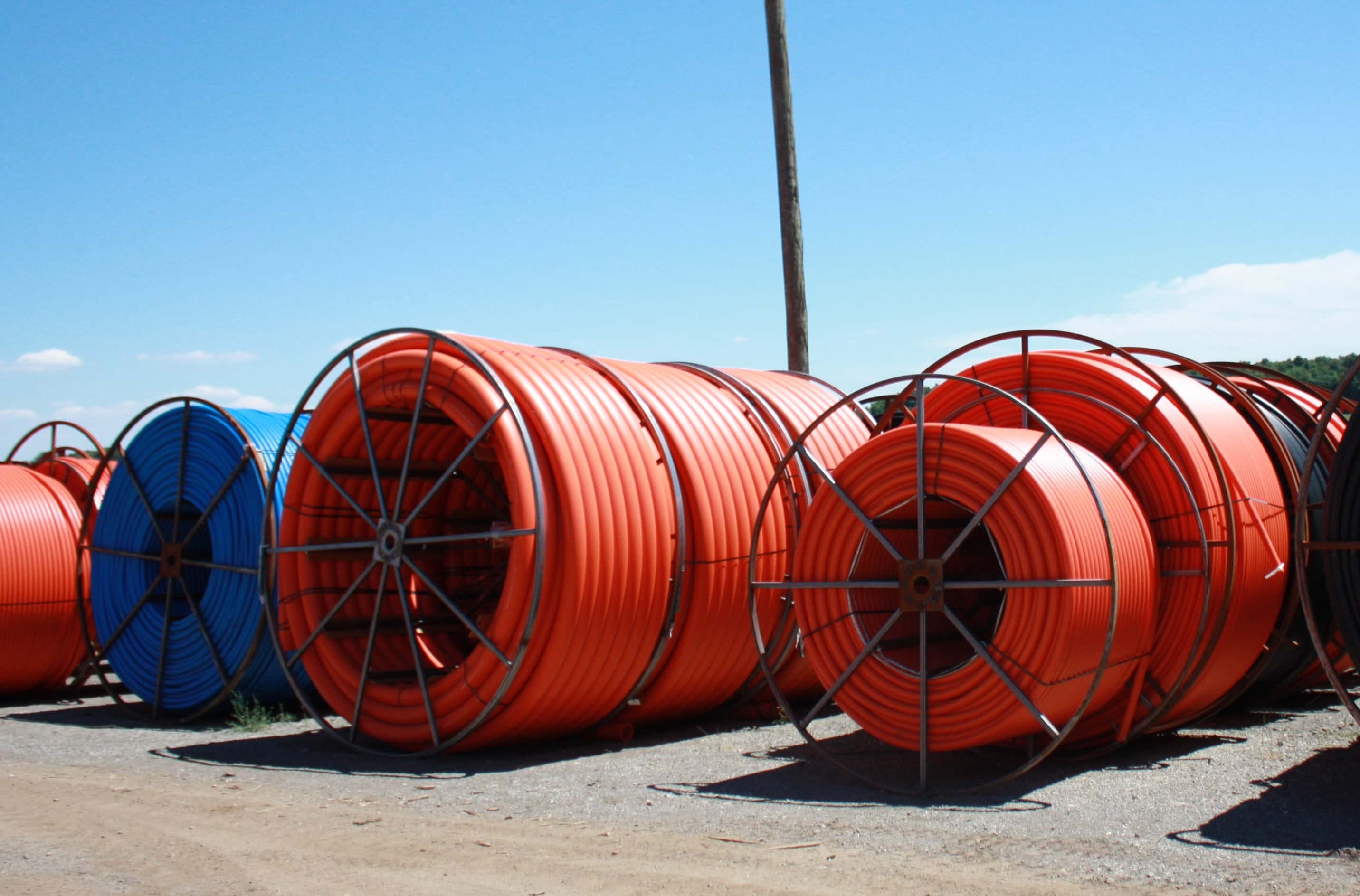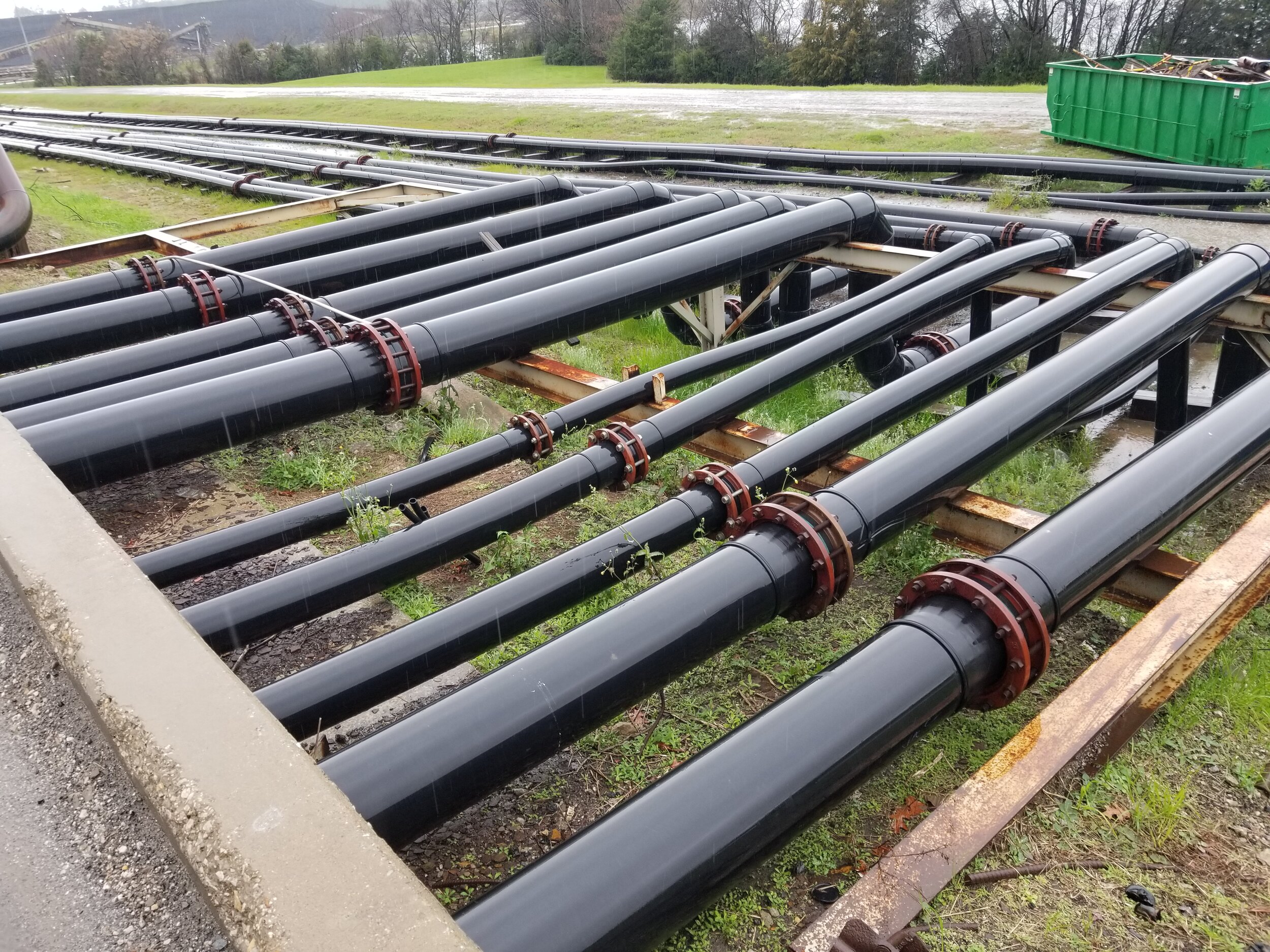American Plastics HDPE Pipe for Oilfield: Built for Harsh Conditions
A Comprehensive Guide to the Different Usages of HDPE Pipe in Building And Construction and Market
HDPE pipelines have actually become a pivotal element in modern-day construction and industrial applications. Their unique residential or commercial properties, such as resistance to corrosion and light-weight layout, make them suitable for a large variety of usages. From water supply systems to agricultural watering, HDPE pipelines supply solutions that improve effectiveness and sustainability. Recognizing their diverse applications is vital for experts aiming to optimize infrastructure. What particular advantages do these pipes give each field?
Supply Of Water and Distribution Solutions
Water system and distribution systems are important parts of city framework, often depending on high-density polyethylene (HDPE) pipelines for their durability and efficiency. These systems transportation safe and clean water from therapy centers to customers, making sure ease of access and safety. HDPE pipes are favored for their resistance to deterioration, chemicals, and extreme temperature levels, which enhances their long life and lowers upkeep expenses. Additionally, their light-weight nature permits much easier setup and transportation, making them suitable for different urban and country applications.
The versatility of HDPE pipes allows them to be set up in tight areas and around obstacles, minimizing the demand for substantial excavation (Midland TX HDPE Pipe Fittings in Stock). Their smooth interior surface area decreases rubbing losses, enhancing water circulation rates. As cities remain to grow, the need for reputable supply of water systems raises, positioning HDPE pipes as a lasting solution for contemporary infrastructure jobs. Their tried and tested track record makes them a favored selection among engineers and metropolitan organizers alike
Wastewater Management and Treatment
Efficient wastewater monitoring and treatment are vital for keeping public health and environmental high quality. HDPE pipelines play an important function in this process as a result of their resilience, resistance to rust, and capacity to hold up against severe chemicals. These pipes are typically made use of in various applications, consisting of sewer system, stormwater drainage, and wastewater treatment facilities. Their lightweight nature helps with simpler setup and transportation, minimizing labor expenses and time.
Additionally, HDPE pipes have a smooth indoor surface area that reduces rubbing loss, promoting reliable flow prices. They are likewise less susceptible to leakages and failings contrasted to typical materials, making certain that pollutants are contained successfully. Their flexibility permits for adaptability in different dirt conditions, making them ideal for diverse ecological setups. As industries progressively focus on sustainable practices, the use of HDPE pipes in wastewater administration systems lines up with objectives for minimizing ecological impact and improving source recovery.
Agricultural Irrigation Solutions
In farming settings, effective watering services are essential for optimizing crop yields and managing water sources. HDPE (High-Density Polyethylene) pipelines play an important function in modern watering systems as a result of their durability, adaptability, and resistance to rust. Their capacity to hold up against high pressures makes them optimal for both surface area and subsurface watering applications, ensuring uniform water distribution throughout areas.
Farmers can make use of HDPE pipelines in drip watering systems, which supply water straight to plant origins, decreasing wastefulness and advertising healthy and balanced development. Furthermore, these pipelines are light-weight and very easy to mount, minimizing labor costs and installation time. Their long lifespan and reduced upkeep demands additionally improve their charm in agricultural practices.
HDPE pipelines Click This Link are ecologically friendly, as they can be reused and do not leach dangerous chemicals into the dirt. This makes them a sustainable selection for farmers intending to take on eco-friendly agricultural approaches while making best use of performance.
Industrial Applications and Procedures
Adaptability is a trademark of HDPE pipelines, making them important in different industrial applications and processes. These pipelines are widely used in chemical handling industries as a result of their exceptional resistance to a broad array of destructive substances. HDPE's lightweight nature, combined with high tensile stamina, enables simple installment and long-lasting efficiency sought after settings.
In the oil and gas sector, HDPE pipelines play a vital duty in transporting hydrocarbons and gases, many thanks to their durability and versatility - Midland TX HDPE Pipe Fittings in Stock. Additionally, they are utilized in mining procedures for the transport of slurry and other materials, where traditional piping systems might stop working
Moreover, HDPE pipes are progressively made use of in making centers for supply of water lines and wastewater management. Their ability to stand up to severe temperature levels and stress makes them ideal for a variety of commercial procedures. Overall, HDPE pipelines add greatly to efficiency and safety throughout diverse industrial applications.
Stormwater Management and Water Drainage Solutions
Stormwater management and drainage systems are vital parts in metropolitan framework, designed to take care of excess rainfall and minimize flooding dangers. High-density polyethylene (HDPE) pipes are increasingly utilized in these systems as a result of their sturdiness, versatility, and resistance to corrosion. These pipelines successfully deliver stormwater away from populated locations, lessening surface overflow and protecting against waterlogging.
HDPE's light-weight nature helps with easier installment, minimizing labor costs and building and construction time. Furthermore, its resistance to chemicals and environmental stress factors guarantees longevity and integrity in various environments. Along with traditional water drainage applications, HDPE pipes are additionally utilized in cutting-edge services such as environment-friendly facilities, that includes rain yards and permeable sidewalks.

Frequently Asked Inquiries
Exactly How Does HDPE Pipeline Compare to PVC Pipeline in Expense?
As a whole, HDPE pipeline tends to be extra costly than PVC pipeline due to its boosted sturdiness and flexibility. Lasting cost considerations, such as maintenance and life-span, may prefer HDPE in specific applications.
What Is the Lifespan of HDPE Water Lines Under Numerous Problems?
HDPE pipelines generally have a life expectancy of 50 to 100 years, relying on ecological problems, setup methods, and use. Aspects such as temperature level, soil type, and direct exposure to chemicals can significantly influence their resilience.
Can HDPE Pipeline Be Recycled After Usage?
Yes, HDPE pipelines can be reused after use. The recycling procedure involves thawing down the material, enabling it to be repurposed into new products, thus advertising sustainability and lowering ecological influence related to plastic waste.
Are There Any Type Of Certain Setup Challenges With HDPE Pipes?
Installation obstacles with HDPE pipes consist of correct jointing methods, making sure adequate trench problems, and managing thermal development. Additionally, skilled labor is required to take care of specific devices, which can complicate the setup procedure in numerous settings.

What Accreditations Should I Seek When Acquiring HDPE Pipelines?
When purchasing HDPE pipelines, one need to search for certifications such as ASTM, AASHTO, and ISO, which validate top water main repair near me quality and compliance with industry requirements, assuring durability and efficiency in various applications. - Texas hdpe pipe manufacturer